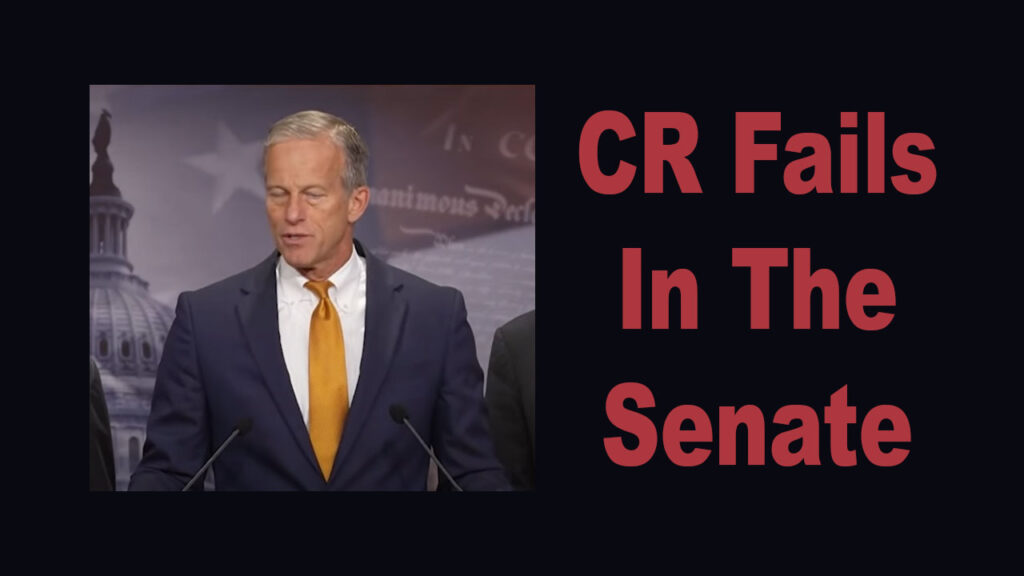John Thune Warns Democrats: GOP Blames Schumer Strategy for Senate CR Failure

After a failed continuing resolution vote, Thune and Republican leaders accuse Democrats of pushing a shutdown strategy to appease the party’s left wing, urging them to pass the House-approved bill to keep the government funded. GOP Blames Schumer Strategy for Senate CR Failure.
Senate Votes Fail, Tensions Rise
Republican Senate Leader John Thune delivered a stern warning to Democrats on Friday after the Senate failed to pass two separate continuing resolution (CR) votes aimed at avoiding a government shutdown. Speaking to reporters following the votes, Thune emphasized that Republicans remain committed to keeping the government open but will not accept what he described as Democrats’ attempts to “hijack” the process with additional spending and policy changes.
House-Passed Bill Called “Straightforward Solution”
Thune argued that the solution is already on the table: a bipartisan bill that passed the House of Representatives and awaits Senate approval before heading to the President’s desk. “All it takes is a handful of Democrats to join the Republicans in keeping the government open,” Thune said. “We’re ready to act on a clean resolution to give us another seven weeks to complete the appropriations process.”
GOP Accuses Schumer of “Shutdown Strategy”
Senator John Barrasso echoed Thune’s comments, calling the Democrats’ approach a “shutdown strategy” driven by pressure from the party’s left flank. Barrasso criticized Senate Majority Leader Chuck Schumer for demanding what he characterized as “a trillion dollars for just four weeks of a continuing resolution,” contrasting it with the seven-week extension backed by Republicans.
Freshman Senator Highlights Wider Obstruction
Freshman Senator Tim Sheehy added that the impasse is part of a broader pattern of obstruction, pointing to what he called an unprecedented blockade of nominees and critical national defense and wildfire positions. “We are witnessing unprecedented obstruction in this institution,” Sheehy said. “The radical left has co-opted Senator Schumer, putting our government and national security at risk.”
Push for Regular Order and Open Debate
Republicans insisted they want a return to “regular order,” allowing appropriations committees to mark up and debate spending bills in an open amendment process. They argued that Democrats’ push to attach significant policy changes—such as Affordable Care Act tax credit extensions—to a short-term funding bill is outside the historical purpose of a CR.
Lessons From 2013 and Political Risks
Thune also invoked lessons from past shutdown fights, noting that Republicans learned in 2013 that loading major policy demands onto a CR can backfire politically. “When you’re the ones trying to add a whole bunch of new stuff, you’re the ones who end up getting blamed,” Thune said, warning Democrats that a similar miscalculation could be costly.
A Clear Choice Ahead
With the government’s funding deadline looming, Thune urged Democrats to abandon what he described as partisan gamesmanship. “This is not a serious negotiation,” he said. “We have a bill that passed the House, the President is ready to sign it, and plenty of Republicans are prepared to vote for it. The question is whether Democrats are willing to join us in keeping the government open.”
As both parties prepare for another round of talks, the standoff highlights the fragile balance of power in Congress and the political risks of a government shutdown. Whether Democrats will concede to the GOP-backed CR or hold firm on their demands could determine whether federal agencies face a funding lapse in the coming days.





